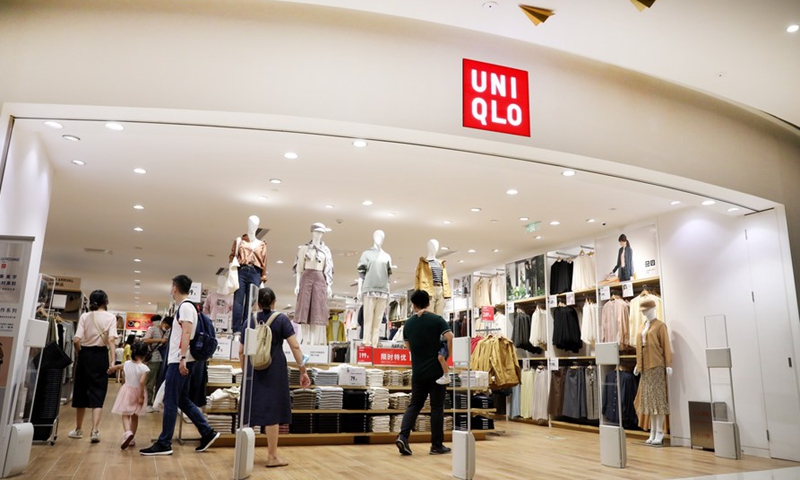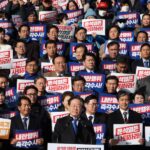Tadashi Yanai, CEO of Uniqlo’s parent company, Fast Retailing, recently stated in a BBC interview that the company is not using cotton from China’s Xinjiang region. His remarks have triggered a backlash against the brand among some Chinese consumers, while simultaneously reignited discussions about the challenges multinational corporations (MNCs) face amid global geopolitical tensions.
While Yanai has also criticized initiatives like “decoupling from China” and acknowledges the importance of Chinese manufacturing, his ambiguous position on Xinjiang cotton highlights the challenges corporations encounter in a polarized global landscape. This incident goes beyond the specific challenges faced by Uniqlo and underscores the broader challenges encountered by MNCs whose businesses straddle China, a vital manufacturing base and market, and the US-led Western alliance, which is currently focused on counterbalancing Chinese growth.
China’s allure lies not only in its unparalleled manufacturing capabilities but also in its enormous consumer market. Alongside its massive population, the country boasts the world’s most comprehensive and efficient industrial base, with an integrated supply chain. Uniqlo serves as a prime example of how critical China is to global businesses. Among its 397 partner manufacturing facilities worldwide, 211 are located in China. Furthermore, 75 of its 155 partner textile mills are also in China. These numbers alone emphasize China’s dominance in Uniqlo’s supply chain.
Yanai acknowledged that replacing China’s manufacturing networks is “nearly impossible.” Despite recent investments in the manufacturing bases of countries like Vietnam and Bangladesh, China’s combination of skilled labor, advanced infrastructure, and supply chain efficiency remains unmatched. Efforts to diversify supply chains as part of the “China+1” strategy have achieved limited success. For instance, Uniqlo’s attempt to establish factories in Myanmar was abruptly halted due to the country’s political turmoil, resulting in significant losses.
At the same time, China is a crucial market for Uniqlo. In 2024, sales revenue from China reached 677 billion yen, accounting for 21.8 percent of its total revenue, second only to the Japanese domestic market. Companies like Uniqlo cannot afford to abandon China without risking their cost-effective production and access to one of the world’s fastest-growing markets.
While China represents critical business interests, multinational corporations increasingly feel the rising political pressure from Western nations, particularly the US. The US has intensified its scrutiny of supply chains, especially those related to human rights, security issues, the Taiwan question, and regions like Xinjiang, often creating excuses that undermine the strengths of Chinese manufacturing. The so-called labor issue in China’s Xinjiang is a typical pretext fabricated.
For corporations like Uniqlo, acknowledging the use of Xinjiang cotton could invite penalties from Western authorities, while denying its use, as Yanai did, triggers backlash from Chinese consumers who perceive such statements as kowtowing to Western political pressure. This “two-front” business challenge has become a standard dilemma for global brands navigating the great-power rivalry between the US and China.
The broader agenda behind Western pressure is clear: The US, through legal, economic, and rhetorical tools, seeks to build an alternative global supply chain that reduces dependence on China while curtailing Chinese economic influence. However, displacing China from global supply chains requires immense resources, time, and international market coordination — something that current efforts have not effectively achieved.
Reactions to Uniqlo’s Xinjiang statement on Chinese social media platforms, such as Weibo, are complex. Some netizens are calling for boycotts against brands perceived as yielding to Western pressure, while other voices advocate for pragmatism, recognizing the importance of multinational companies for local employment and economic growth.
Foreign companies must respect China’s sovereignty and make balanced statements. “Cotton from the Xinjiang region is among the best in the world. We hope relevant company will overcome political pressure and malign disruption, and independently make business decisions that serve its own interests,” Chinese Foreign Ministry Spokesperson Mao Ning said on Friday. At the same time, it is important to ensure a stable and predictable business environment that encourages continued investment and allows multinational companies to remain key players in China’s economy.
As one of the world’s largest economies and a hub of manufacturing excellence, China has every incentive to maintain open markets and foster collaboration. The key for China is to consistently demonstrate why it is the most efficient and reliable partner for global economic activities.













